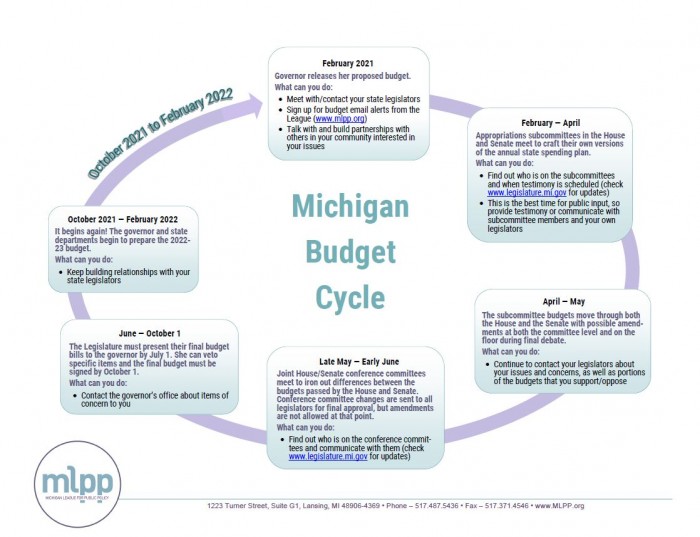|
In this Edition
LEGISLATIVE UPDATES $1.2 Billion in Supplemental Funding Passed Some of the highlights include:
Fiscal Year 2023 Budget Recommendation On Wednesday, Feb. 9, Gov. Gretchen Whitmer released her fourth executive budget recommendation, one that’s committed to making strong investments in education and putting Michiganders first by putting money back in their pockets and delivering on the issues that matter most to Michigan families. The budget recommendation invests in the success of students and teachers, enhances Michigan’s economic momentum and supports our workforce, rebuilds the state’s roads, bridges, and pipes, improves the health of residents, and bolsters public safety. At $74.1 billion ($14.3 billion General Fund), the governor’s recommendation represents a 6% increase from the current fiscal year, with departmental funding also seeing averaged proposed increases of 20% or more. On the education front, she has also proposed a 5% increase in per-pupil funding, or $435 more per student, which equates out to funding of $9,135 per pupil, along with a 10% increase for the state’s 15 public universities (5% ongoing and 5% a one-time adjustment). The K-12 School Aid Budget would increase by 8.1%, with $1.5 billion set aside as financial incentives for teachers who agree to work for their school district for the next three years, in addition to $600 million proposed to be used for teacher recruitment. Other noteworthy highlights of the budget proposal include:
With an eye toward the future, Gov. Whitmer has recommended that $52 million be set aside and put into the state’s Budget Stabilization Fund, or rainy-day fund, bringing that to $1.5 billion — the most ever As a reminder, the Governor’s proposal is not the set budget for the fiscal year. The Governor presents her recommendations to the legislature, which then heads to conference committees where the legislature will work with the executive administration to create a final budget to be voted on by both legislative chambers. Look below for a timeline rundown of the budget process:
|
|
You can also find this timeline on the Michigan League for Public Policy website.
Meet Up with Mallory Coffee Hour Click here to watch the entire Fiscal Year 2023 budget presentation. Submit any questions you have for Senator McMorrow to address during our LIVE coffee hours here. As always, our office can be contacted at SenMMcMorrow@senate.michigan.gov or through our contact form on our website here.
Sincerely, |



